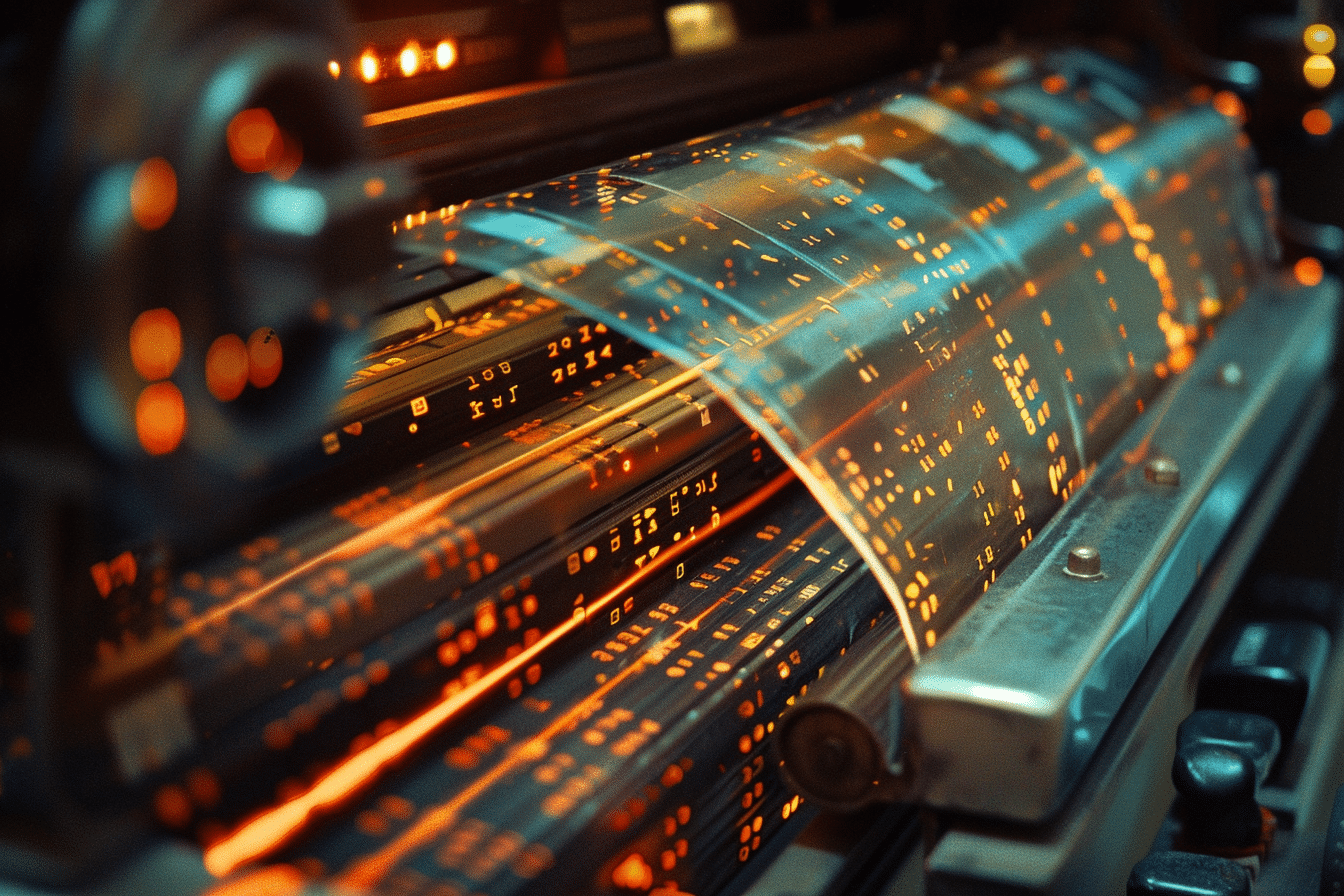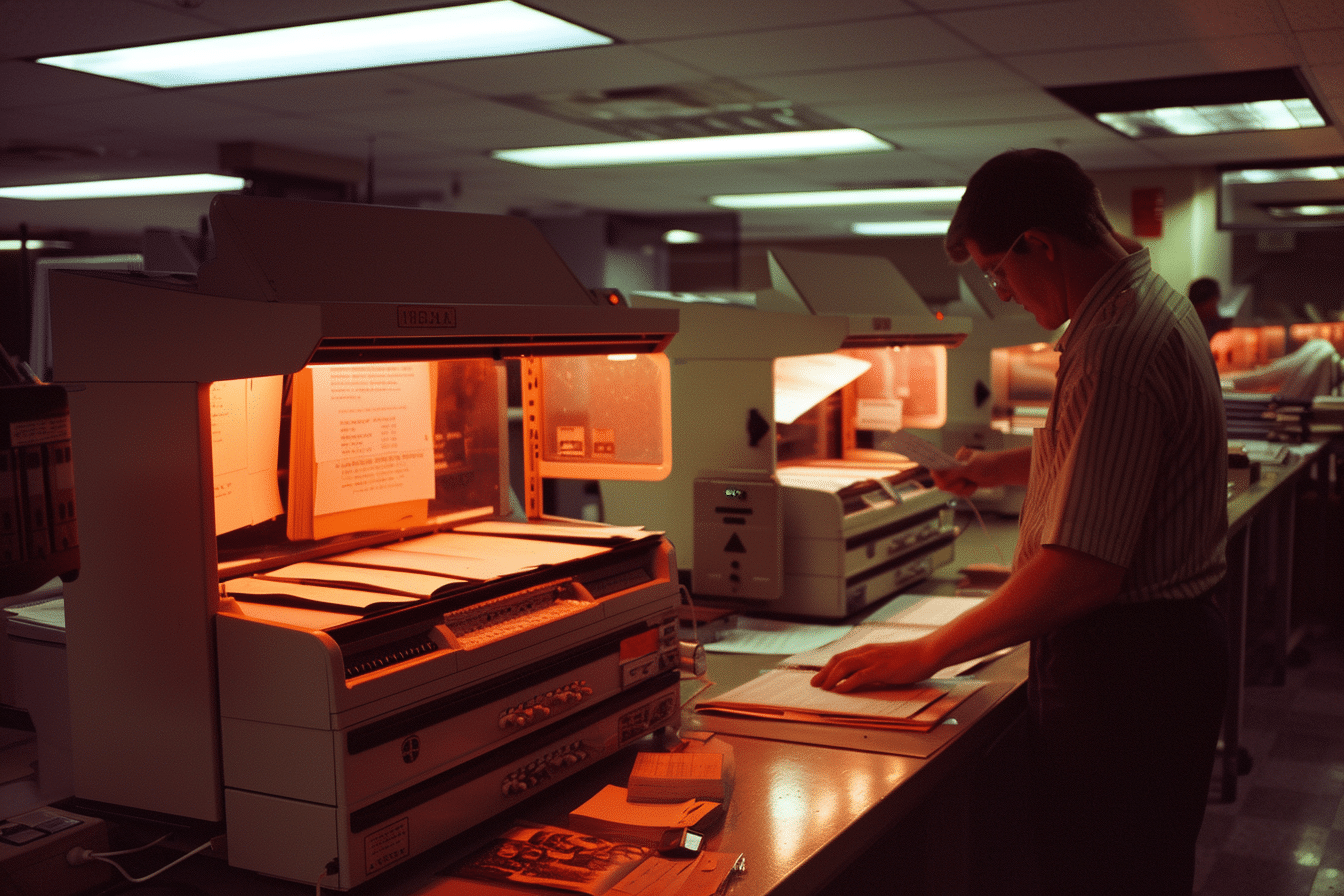Microfilm & Microfiche Scanning
Microfilm and microfiche have long served as reliable storage media for archival documents across various industries, including government, healthcare, and education. As technology advances, the need to convert these media into digital formats becomes increasingly urgent. Digitization enhances accessibility, safeguards historical data against physical decay, and significantly reduces storage space requirements. At PROSCAN, we specialize in transforming your outdated microfilm and microfiche archives into high-quality digital formats, streamlining the way you access and manage your documents.

Microfilm and microfiche scanning is the process of converting microfilm rolls and microfiche sheets into digital formats. This allows for easier access, distribution, and preservation of the information contained within these archival documents.
Digitizing your microfilm and microfiche makes the information more accessible, reduces physical storage requirements, protects against physical decay, and can be more cost-effective in the long run.
We can convert microfilm and microfiche into several digital formats, including PDF, TIFF, and JPEG, depending on your needs and the specifics of the project.
To prepare your microfilm or microfiche for scanning, ensure they are clean, properly labelled, and organized. If you are unsure how to prepare your materials, PROSCAN can provide guidance and services to help get your documents ready for digitization.
The cost can vary depending on the volume of material, the format of the digital files required, and the condition of the original media. PROSCAN offers competitive pricing and can provide a custom quote based on your specific needs.
The time frame for digitizing microfilm and microfiche depends on the volume of material and the specifics of the project. PROSCAN can provide an estimated completion time once we review your materials and requirements.
PROSCAN can digitize all common formats of microfilm and microfiche, including 16mm and 35mm rolls, jacketed fiche, and COM fiche.
PROSCAN uses state-of-the-art scanners with automatic frame detection, focus adjustment, and dynamic range optimization to ensure high-quality digital outputs that are true to the original documents.
PROSCAN takes document security seriously. All materials are handled in a secure facility with controlled access. Digital files are encrypted and can be delivered through secure channels based on client preferences.
While most microfilm and microfiche types are suitable for scanning, extremely damaged or deteriorated films may pose challenges. PROSCAN evaluates all materials beforehand to determine the best approach for digitization.
Yes, PROSCAN offers sample scans so you can assess the quality and compatibility of our digitizing process with your needs before proceeding with a large-scale project.
PROSCAN provides high-resolution scans up to 600 dpi for microfilm and microfiche, ensuring that all details are captured accurately, ideal for archival quality.
After scanning, you can choose to have the original microfilm or microfiche returned, stored, or securely destroyed. PROSCAN can assist with whichever option you select.
Yes, our scanners are capable of processing color microfiche. We ensure that color information is accurately captured and reflected in the digital outputs.
All materials are handled with utmost care by trained professionals in a secure, controlled environment to prevent any damage or loss.







